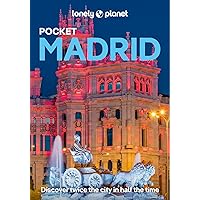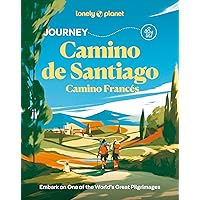Spain is a country that loves a good fiesta, with its rich tapestry of traditions, customs, and celebrations that have evolved over centuries. Each region has its own unique festivals, reflecting the diverse cultures, histories, and even climates across the Iberian Peninsula. From the fiery passion of Andalusia’s Easter processions to the explosive tomato-throwing madness of La Tomatina in Buñol, visitors can immerse themselves in the joyous spirit that defines this nation. One of the most famous festivals is Carnival, celebrated with particular flair in Cádiz and the Canary Islands. In Cádiz, the streets come alive with humor and satire, as groups known as ‘chirigotas’ perform witty songs that poke fun at politics and social issues. The city’s Plaza de San Antonio becomes the focal point for these performances, while the grand finale, known as the ‘Gran Teatro Falla,’ is a spectacle not to be missed. Meanwhile, in the Canary Islands, Santa Cruz de Tenerife hosts one of the world’s largest carnivals, second only to Rio de Janeiro. The highlight is the parade of dazzling costumes and floats, culminating in the election of the Carnival Queen, a title coveted by many. In the north, Pamplona is famous for its San Fermín festival, where the running of the bulls, or ‘encierro,’ draws thrill-seekers from around the world. Every July, the city’s narrow streets are transformed into a racetrack as six bulls charge through the crowds, followed by a sea of white-clad runners. The festival, immortalized by Ernest Hemingway in his novel “The Sun Also Rises,” is more than just an adrenaline rush; it’s a celebration of Navarrese culture, with traditional music, dance, and endless feasting on local delicacies like ‘txistorra’ (a type of sausage) and ‘pintxos’ (the Basque version of tapas). For a more tranquil experience, the Fallas of Valencia offer a dazzling spectacle of art and fire. Held in March, this festival sees the city’s streets filled with towering papier-mâché sculptures, or ‘fallas,’ that are carefully crafted by local artists over the course of a year. Each falla tells a story, often with a humorous or satirical twist, and on the final night, known as the ‘Nit de la Cremà,’ they are set ablaze in a fiery finale that lights up the night sky. The festival also features daily firework displays, known as ‘mascletàs,’ where the ground shakes with the thunderous roar of explosions. In the south, Andalusia’s Semana Santa is a deeply spiritual experience, as the streets of Seville, Málaga, and Granada are filled with processions of penitents, known as ‘nazarenos,’ who carry intricate floats depicting scenes from the Passion of Christ. Each float, or ‘paso,’ is a work of art, adorned with flowers, candles, and silver or gold decorations, and is carried by teams of men known as ‘costaleros.’ The processions are accompanied by solemn music and the haunting sound of ‘saetas,’ traditional flamenco songs sung from balconies along the route. Another must-see festival is the Feria de Abril in Seville, a week-long celebration of Andalusian culture that takes place two weeks after Easter. The fairground, known as the ‘Real de la Feria,’ is transformed into a city of brightly colored tents, or ‘casetas,’ where locals gather to eat, drink, and dance the night away. During the day, the streets are filled with horse-drawn carriages and riders dressed in traditional costumes. At night, the fairground is illuminated by thousands of lights, creating a magical atmosphere that is truly unforgettable. Across the country, each region has its own unique way of celebrating the harvest season. In La Rioja, the grape harvest festival, or ‘Fiesta de la Vendimia,’ is a joyous occasion where locals stomp grapes with their feet to produce the first wine of the season. The festival also features traditional dances, music, and a lively parade of floats decorated with grape-themed designs. In Galicia, the wine harvest is celebrated with the ‘Festa do Albariño,’ where visitors can sample the region’s famous white wine, accompanied by local seafood delicacies. No visit to Spain would be complete without experiencing the Tomatina in Buñol, a small town near Valencia. Held on the last Wednesday of August, this quirky festival sees thousands of participants hurling overripe tomatoes at each other in a massive food fight that leaves the streets awash in red. The event lasts for just one hour, but the party continues with music, dancing, and a communal paella feast in the town square. While it may seem like chaos, the Tomatina is a carefully organized event, with rules in place to ensure everyone’s safety, including wearing goggles to protect the eyes and squashing tomatoes before throwing them. Finally, in the Basque Country, the Semana Grande of Bilbao and San Sebastián is a week-long celebration of Basque culture, with traditional sports, music, and dance. In Bilbao, the city’s iconic ‘txupinazo,’ or rocket launch, marks the start of the festivities, followed by a packed program of events, including concerts, street performances, and fireworks displays. San Sebastián’s Semana Grande is known for its strongman competitions, where contestants compete in events like stone lifting and wood chopping, showcasing the region’s proud athletic heritage.
Experience Spain’s vibrant festivals along these unforgettable routes
Disclaimer
"Please note that the information provided on this website serves as a general guide. Requirements might vary depending on your country of origin. Always refer to up-to-date and official sources or consult the corresponding consulate for specific procedures. Keep in mind that the details shared in this article might have changed after its publication. It's essential to verify the most recent data, particularly concerning establishments like hotels or restaurants. SpainSeeker.com is not responsible for any changes or discrepancies."

Subscribe
Recommended books
Popular




